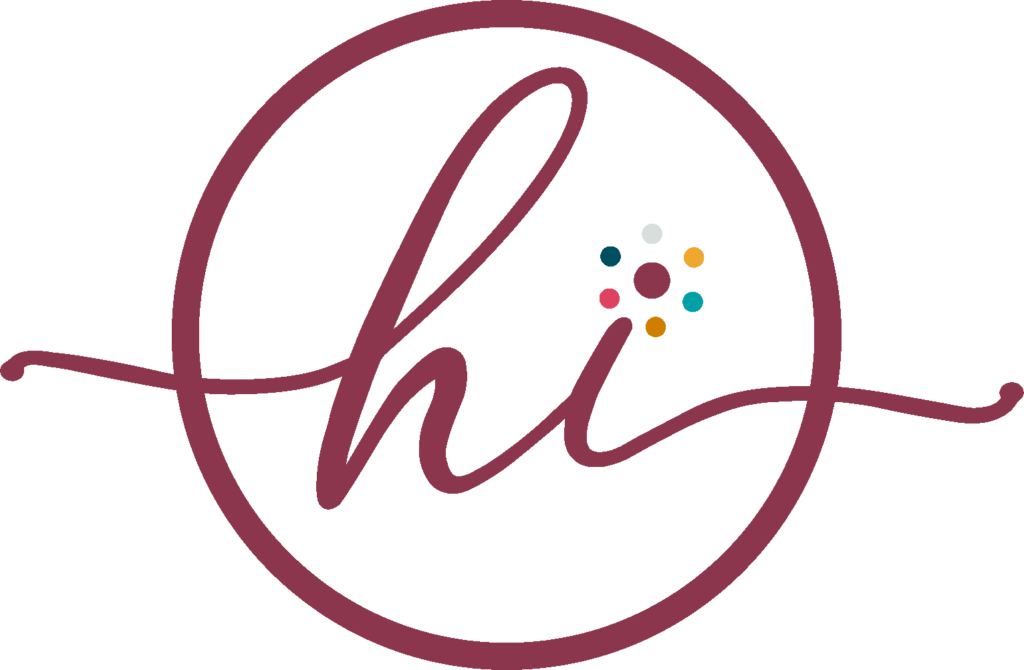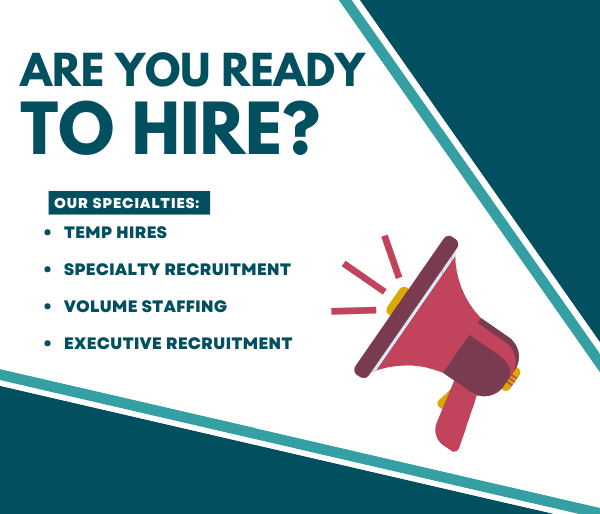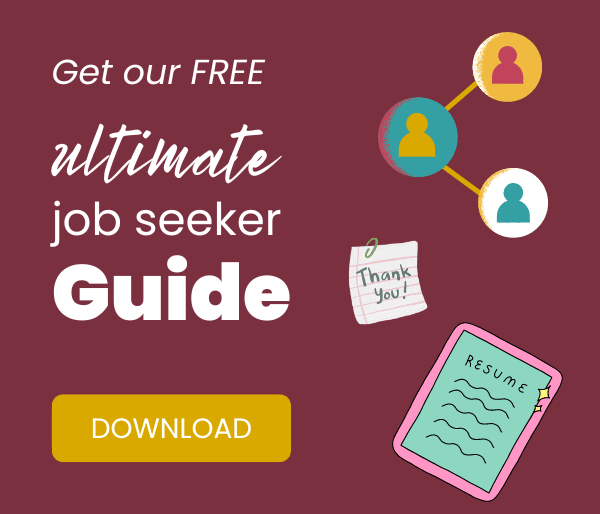Last Updated on September 20, 2024
If you are new to informal interviews, it’s likely you have some questions. The following article will run through the basics surrounding informational interviews, including how to prepare, what to expect, and important keys to keep in mind for these interviews.
Defining an Informal Interview
What are informal interviews?
To begin, its crucial to define what an informal interview is. An informal interview is an relaxed interview that takes place in a more casual setting, like a restaurant, coffee shop, or café. Informal interviews actually have the same purpose as normal interviews. An employer is trying to see if a candidate would be a good fit for a position. Sometimes, employers use informal interviews to gauge someone’s interest in a position.
Since informal interviews often occur in restaurants or coffee shops, it’s likely that the interview will be conducted over food or drinks. Since the employer invited you for the interview, it’s probable that they will be the one to pay.
What is the difference between a formal and informal interview?
The main difference is that an informal interview will be much more relaxed than a formal interview. This could be because of the interviewer’s preferences, the urgency to fill the role, the company culture, or just what stage you are at in the interview process.
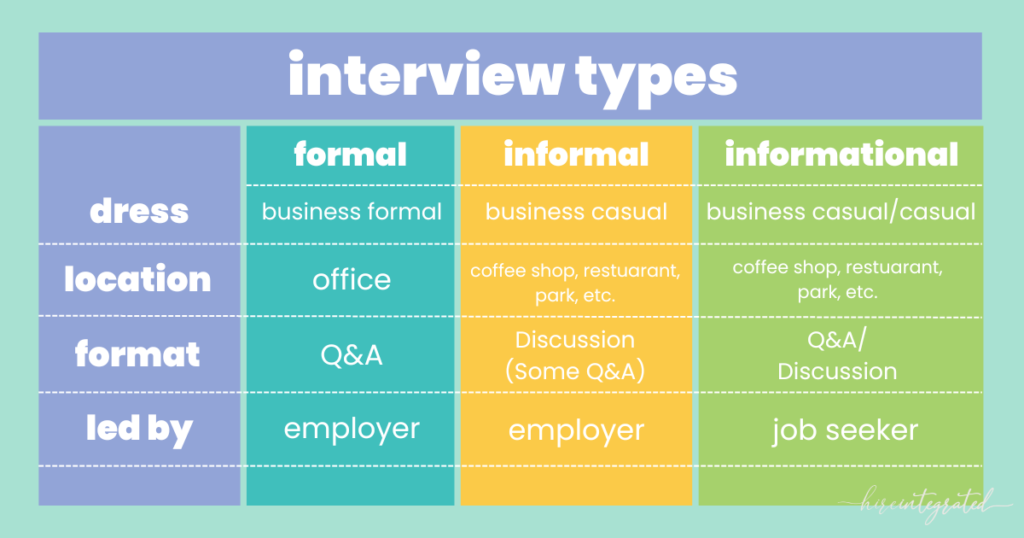
Informational vs. informal interview
It’s easy to get these two types of interviews mixed up simply based on how similarly they are spelled. Despite their similar sounding names, an informational interview and an informal interview are very different in purpose. An informational interview is often initiated by a job seeker to get advice, network, and look for job opportunities. An informal interview is conducted by a hiring manager or recruiter and is part of the job application process.
Why do employers use informal interviews?
If an employer chooses an informal interview format, there could be a number of reasons for it. Some of those include:
- The company operates with a relaxed culture, even in interviews. They want to make the culture of their company clear to candidates
- They want to see how the candidate acts in an informal environment to see if they would be a good fit for the company culture. It also allows the candidate to speak more freely and more in-depth on what they could add to the organization
- The recruiter/hiring manager wants a chance to gauge to see if you are interested in the role/company
- The recruiter/hiring manager doesn’t have a specific role in mind and wants to have a discussion to see what openings you’d be a good fit for.
Preparing for an Informal Interview
What should I expect in an informal interview?
As you get ready for an informal interview, try to prepare the same way as you would for a formal interview. However, be prepared to talk and discuss in a more relaxed fashion. An informal interview will likely not follow the same Q&A pattern as a formal interview would. Prepare to discuss your experience and the job in a conversational tone and setting. Since it’s likely that the same sort of questions will be discussed in an informal interview as a normal interview, you should review basic interview questions to prepare.
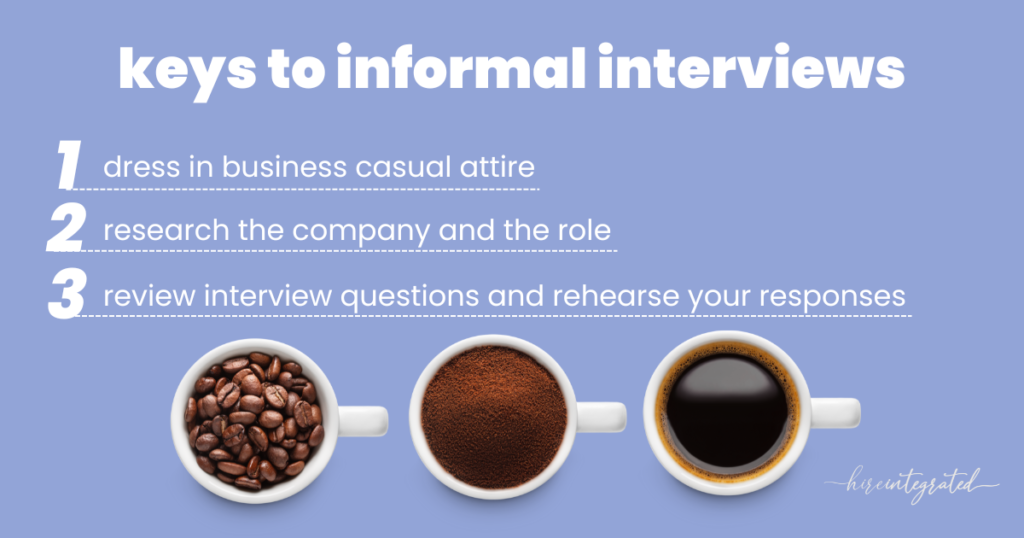
How To Prepare for Informal Interviews:
- What to Wear: Opt for a business casual look. Since the interview will be casual and in a relaxed setting, there is no need to dress as you would for a formal interview.
- What to Bring: It’s a good idea to bring a copy or two of your resume. If you have them, you could also bring business cards.
- Do Your Homework. Just as you would for a normal interview, you should research the company and familiarize yourself with the company and/or role. Have a basic understanding of the organization.
- Review Interview Questions. Look over common interview questions and rehearse your responses. Although it is not a formal interview, you could be asked many of the traditional interview questions. Be prepared for it.
Informal Interview Questions:
As you get ready for your interview, you should be ready for the basic interview questions. Since an informal interview might not always involve a specific role, your interview could include more questions surrounding your career goals and interests.
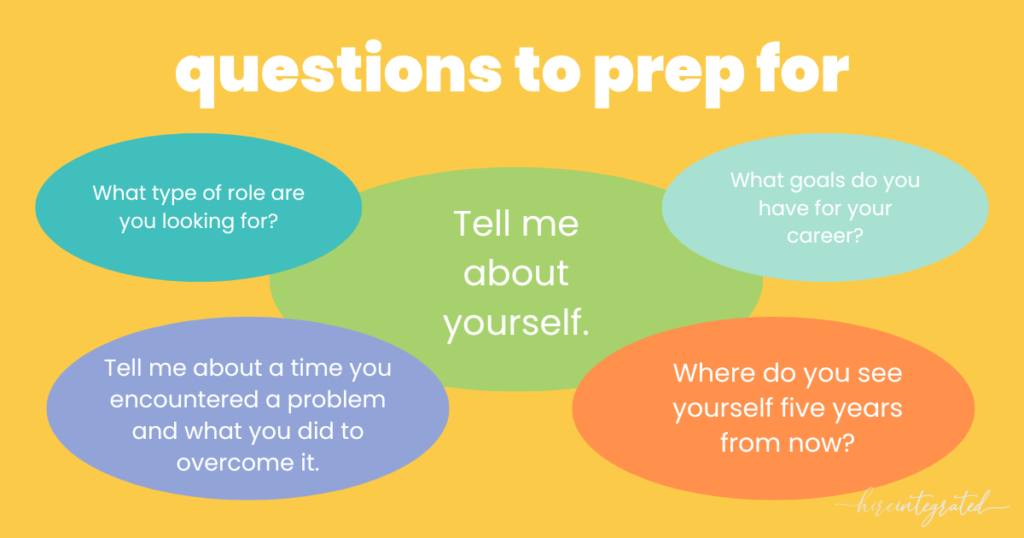
Questions They’ll Ask You:
- Tell me about yourself.
- Where do you see yourself five years from now?
- Tell me about a time you encountered a problem and what you did to overcome it.
- What goals do you have for your career?
- What type of role are you looking for?
Unlike a traditional interview, you will have much more time to ask questions during an informal interview. For that reason, you must be prepared and have good questions ready to ask the recruiter or hiring manager. Here are some questions you could ask:
Questions You Should Ask Them:
- Could you tell me more about why you reached out to me?
- What are [their company’s] goals for the future?
- What is the culture at [their company] like?
- What do you like best about working at [their company]?
Things to Remember – Informal Interviews
Prepare the same as you would for a normal interview. Be sure to come to your interview with questions about the role and about the company. No matter the interview format or setting, being prepared with strong, thought-provoking questions can be extremely indicative of an interested candidate.
Be cautious not to overshare information that would impact your ability to get hired. Although this interview is in an informal setting, remember that it is still an interview. Everything you say matters! Be careful not to speak too freely as this person is considering hiring you and you’d hate to say something that would remove you from consideration.
When everything is said and done, there is no need to stress about your informal interview. These interviews are a great since they offer tremendous flexibility for both employers and job seekers. If you follow these tips, you can’t go wrong!
If you need some additional job search advice, check out the other resources for job seekers on our blog!
Or, here are some excellent related resources:
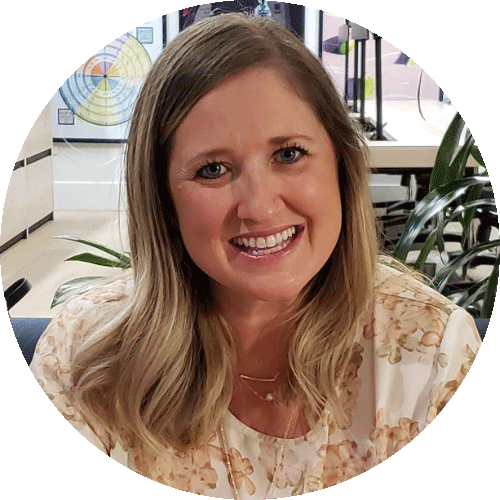
Emily Rushton, Founder and CEO of Hire Integrated, has over a decade of experience in recruitment, helping companies solve high-volume hiring challenges. Her unique, storytelling approach has made her a trusted leader in the industry, helping both businesses and candidates succeed.
